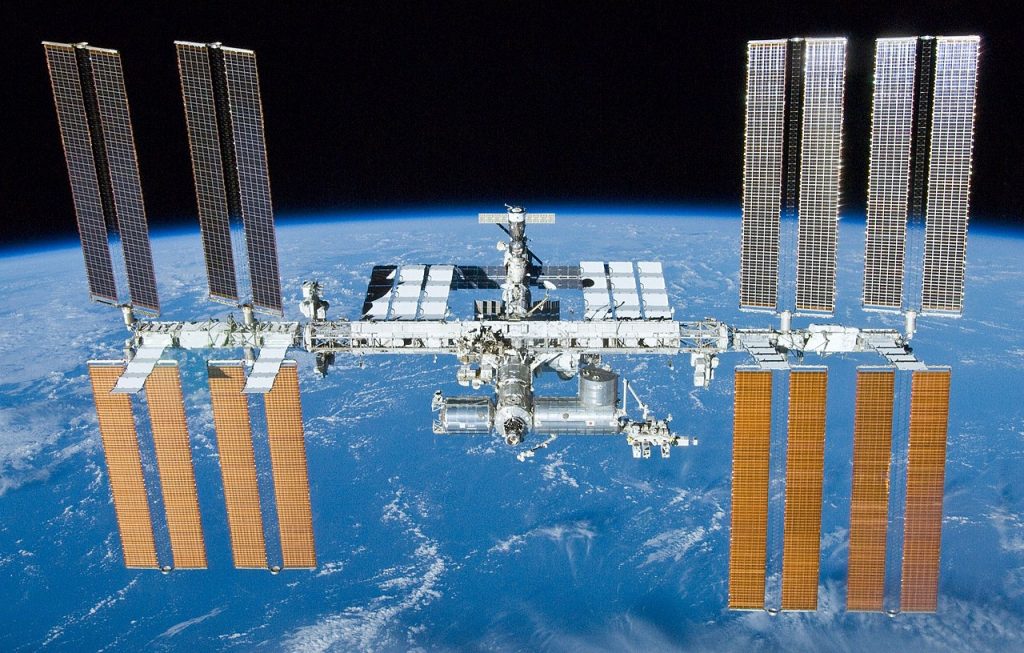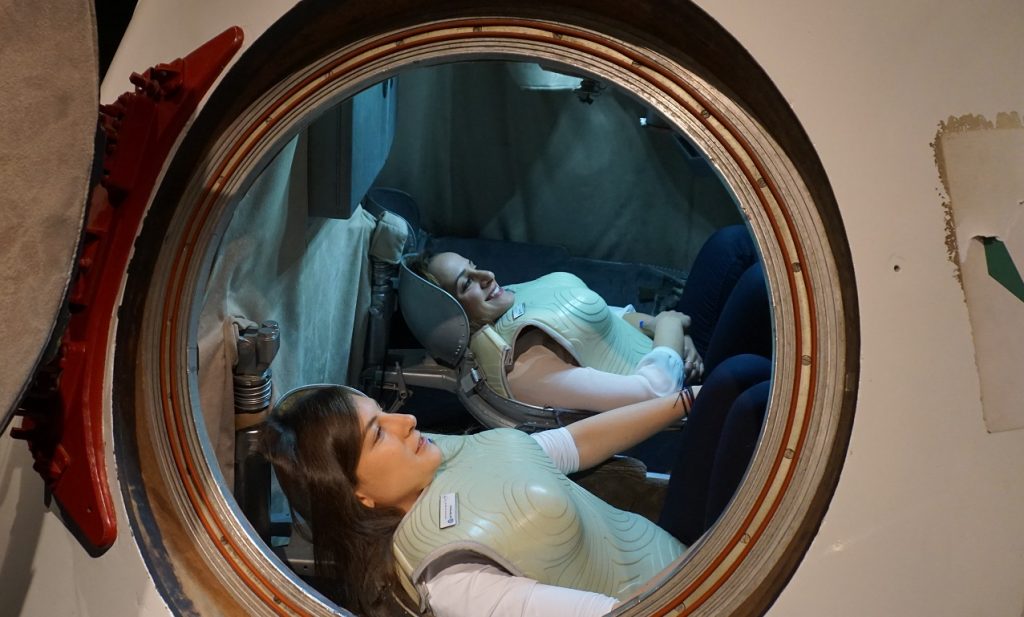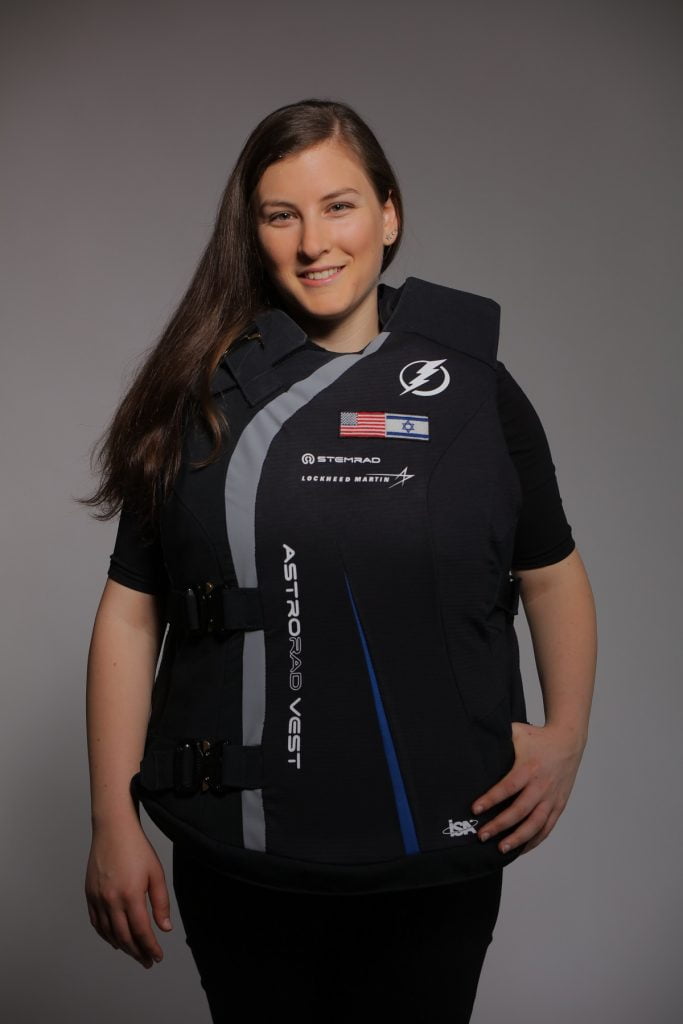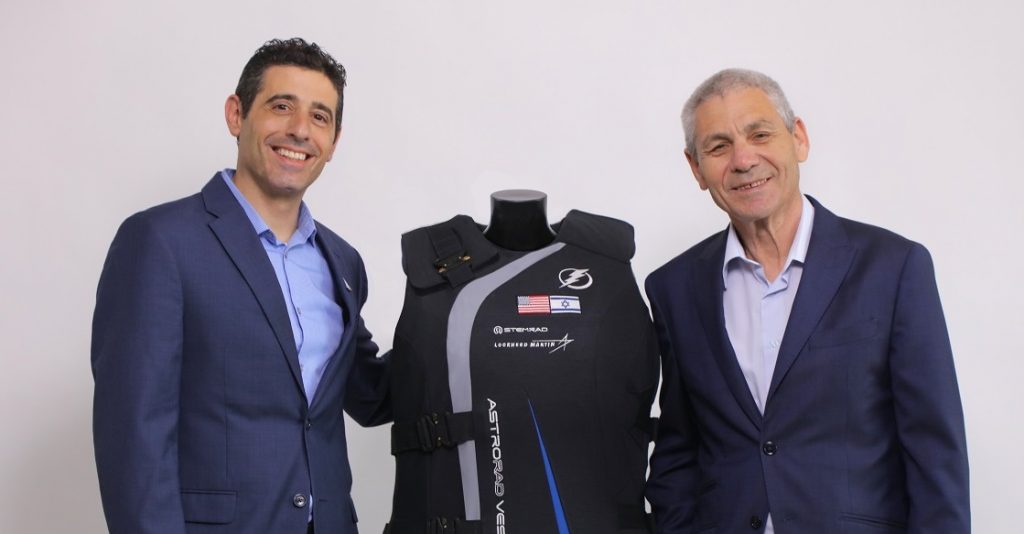The AstroRad, an Israeli antiradiation vest for outer space developed by the US-Israeli startup StemRad, is set to be launched onto the International Space Station (ISS) along with an assortment of science-related supplies this weekend.
The Tel Aviv-based company in collaboration with the Israeli Space Agency (ISA) at the Ministry of Science and Technology said that a prototype of the vest would be launched on Saturday, November 2nd at 9:59 am EST time (3:59 am Israeli time.)

The AstroRad vest, a suit designed to help protect astronauts from radiation and mitigate its damaging effects, is made out of high-density polyethylene, a thermoplastic polymer, which is thicker around the more sensitive organs.
SEE ALSO: Mission To ‘Mars’ And The Moon: Israel’s Space Sector Is Reaching For The Stars
Three American astronauts will wear the suit during routine activities and under the space station’s gravity conditions for varying periods of time. The vest will be used to gather feedback from astronauts on ergonomics, range of motion, experience, and overall comfort level in the environment.

The vest protects the bone marrow, lungs, chest, stomach, colon, and the ovaries among women, organs that are particularly sensitive to the formation of malignant tumors as a result of exposure to radiation.
This will be the first time in history that the Israeli flag, mounted on the AstroRad vest, will be displayed at the International Space Station, a low-orbit space station that serves as a microgravity and space environment research laboratory between five participating space agencies: NASA, Roscosmos (Russia), JAXA (Japan), ESA (Europe), and CSA (Canada).
NASA joined forces with ISA in April 2018 to tap into StemRad’s cutting-edge technology. The ISA, along with the company that developed the wearable radiation protection solution, announced in July 2018 that the vest was ready for launch.
At the time, the ISA, which was sponsoring StemRad’s space activity, signed an agreement with Lockheed Martin to launch the vest for advanced ergonomic studies in microgravity.
Sign up for our free weekly newsletter
Subscribe
Dr. Oren Milstein, CEO of StemRad, said in a statement that the success of the AstroRad trial is “a critical contribution by the State of Israel to NASA’s most ambitious research program since landing on the moon.”
“The Israeli Space Agency and StemRad are proud to work with NASA, Lockheed Martin, and our other partners in developing critical safety equipment to protect space astronauts’ lives, thus advancing a new era of deep space research,” said Avi Blasberger, director of the Israeli Space Agency, in the statement.
The vest is part of some 4,600 pounds (2086kg) worth of equipment to be delivered to the station aboard a Cygnus Northrop Grumman (Cygnus NG-12) spacecraft. The Cygnus NG-12 is the 13th planned flight of the robotic resupply spacecraft and its 12th flight to the ISS under the Commercial Resupply Services contract with NASA. It will be launched from the NASA flight facility on Wallops Island, Virginia.
Other experiments that will be on the spacecraft include space mice, robotic avatars, and recycling polymers for 3D printers. Analog-1, a study led by the European Space Agency that will head to the space station with this launch, will explore how humans can best operate and communicate with robots in space. Also, Zero-G Oven will be used by astronauts to bake cookies in space for the first time.
SEE ALSO: NASA To Test Israeli-Made Radiation Protection Space Vest On Orion EM-1 Flight
NASA signed an agreement with the German Space Center (DLR) to study the AstroRad aboard NASA’s Orion vehicle. NASA has plans to launch the AstroRad into space as part of the last test flight of its Orion spacecraft scheduled to orbit the moon sometime in 2020. Test dummies will be strapped inside wearing AstroRad vests to see if it can properly shield organs. The trial will involve testing the new protective suit against cosmic gamma rays as part of a feasibility study for future missions, including a crewed mission in 2022, Artemis 2.
“We are breaking records…in all fields of science. And in space, in particular,” said Ofir Akunis, Israel’s minister of science and technology. “I am proud of the developers of the first Israeli space suit.”
Related posts

Editors’ & Readers’ Choice: 10 Favorite NoCamels Articles

Forward Facing: What Does The Future Hold For Israeli High-Tech?

Impact Innovation: Israeli Startups That Could Shape Our Future




Facebook comments